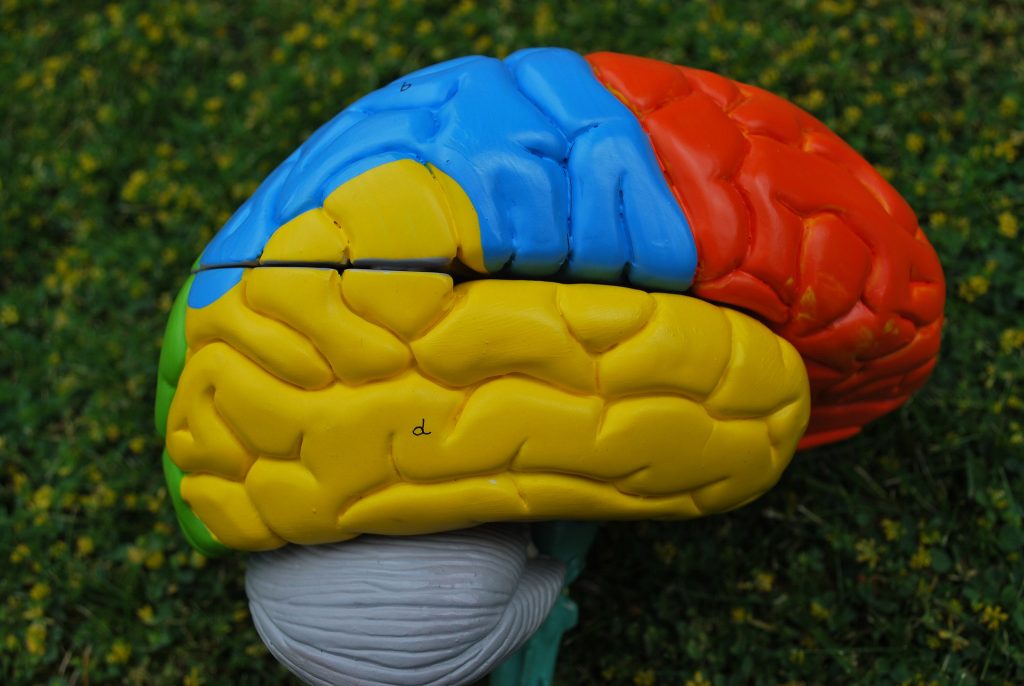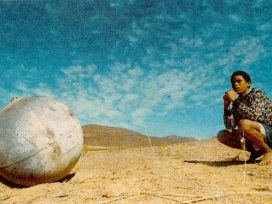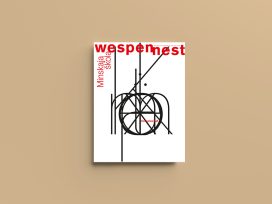Extinction internet
Measures such as ‘ethical AI’ and ‘good data’ will not bring about social justice, end racial capitalism or forestall climate disaster. How to channel discontent and counter-hegemony into an actual transfer of power in the late platform age?
In the context of internet critique, we are aware that the problem of the present is one of information overload. Precipitated by the subliminal, extractivist architectures of social media and other platformed, networked internet cultures, ours is an era of distraction, exhaustion and anxiety. The French philosopher Bernard Stiegler, who passed away in August 2020, referred to our condition in terms of the Entropocene – analogous to the Anthropocene, albeit an epoch characterised by ‘the massive increase of entropy in all its forms (physical, biological and informational)’.1 Not just in the biosphere, but also in the infosphere, the loss of diversity is entropic and is both sterilizing and fragile, collapsing in on itself.2
As Pieter Lemmers and Yuk Hui write,
The truth of our time is a truth to which, according to Stiegler, virtually everyone prefers to close their eyes since it is too traumatic, inconceivable and appalling. It speaks not just about the possible but even the rather likely and imminent end of humanity, or at least of human civilization as we know it.3
What defines our current state of cosmotechnics, as Hui calls it, is a disturbing entanglement of accelerating events, coupled with societal stagnation. Cosmotechnics are the case when a return to the naive stage of globalization is no longer possible, yet geo-political withdrawal near unthinkable. This state of confusion leads to techno-monstrosities, from a rightwing libertarian crypto-boom, the proliferation of fake news and deep fakes, to biased Artificial Intelligence.
The end of the internet as we know it, or even more specifically, the end of network cultures as we have known (and studied) them, comes even nearer.4 Over the past decade, the internet has rapidly shifted from its cool and favourable status as a ‘solution’ to part of the problem, incapable of reversing its own destructive trends. The seamless transition from Covid into the war in Ukraine, inflation and an energy crisis has only further reinstated the collapse of the bio-info-psycho circuit under the weight of the stack of crises. With each shock we move further up and down what might be thought of as a ‘vertical atlas’ of conflicts.5
As the Substack persona Angelicism01 – at once an e-poet, theorist and avatar – writes: ‘The internet is impossible. I don’t think about it because it crushes me. A day on the internet is everything. I cannot know if the internet will end. However, I do know that extinction is looming.’ And yet: ‘Extinction changes. Extinction is an exchange. Extinction itself is changing. This is what the change machines are saying. This is what it means to go all the way with change. The internet and extinction are inextricably linked. To experience the internet is to experience extinction.’6
My generation was the first to discover that the internet, in both Stiegler’s terms and Derrida’s, is a pharmakon – both toxic and curative. Critique of its underlying premises, of the Californian Ideology, must therefore encompass both rejection and proposition. How to bring together analysis and critique into radical, pragmatic networks that can make a difference in terms of research, policy and the development of alternatives? Can the ‘online self’ liberate itself from capture by the vanity marketing trap? Can we experiment with free cooperation and collaboration to escape the cage of the self?
These questions demand an amoral analysis of the situation, one in which we anticipate that the internet has already vanished. In what follows I attempt to characterise this condition in terms of what I am calling the ‘Extinction Internet’. It is my suggestion that first diagnosis, then restorative care, are two necessary steps in beginning the process of healing.

Author: John Campbell; source: Wikimedia Commons
A collapse of imagination
The extinction of the internet does not refer to its collapse overnight, as though the extinction thesis would somehow be falsified were this not to take place. After all, miniature stoppages are already endemic to the internet’s functioning – in ‘load shedding’, filters, paywalls, incidences of state censorship, hacks, failing patches and content moderation, all conducted via cheap labour. What’s really at stake here is the collapse of collective imagination. It is a collapse of imagination in a technology that plays a pivotal role in the everyday life of billions, yet which has the potential to be shaped, steered, designed, bend toward unofficial purposes.
At the level of mental states, there has been much academic focus in recent years on platform-induced distraction, reflexive impotence and ‘depressive hedonia’, as Mark Fisher called it. This alarming situation is now paired with solastalgia, ‘an emerging form of depression and distress caused by environmental change, including climate change, natural disasters, extreme weather conditions, and/or other negative or upsetting alterations to one’s surroundings or home.’7 With millions of climate refugees and counting, we’re challenged to think together of a ‘stack of crises’ in which platform dependency is only one of many urgent concerns.
By my reading of Franco Berardi’s The Third Unconscious, media technologies have entered the body in such a way that the body and soul can no longer be separated from the semiotic infosphere.8 Think of the fatigue that we feel in our eyes, fingers, our whole bodies after yet another Zoom session, or how the neurons in our plugged-in brains reorganize the very possibilities of how we think. This is how technologies of depletion work in ways that scale across society. The user-as-programmer is condemned to live on as a zombie, mindlessly swiping and scrolling, no longer aware of their own activity. A profoundly soporific state is rapidly emerging, our habitual gestures function in an increasingly automated style.
Extinction Internet marks the end of an epoch of collective imagination that in many ways demonstrated how alternative vertical and horizontal technological arrangements were possible. Not one stack but many plateaux. Extinction Internet is not merely an end-of-the-world phantasy of digital technology – an idea that one day the net will be blitzed by an electromagnetic pulse, unleashed by a weapon of mass destruction. The disappearance began with the platform’s foreclosure of imagination. Extinction Internet is the end of an era of possibilities and speculations, when adaptation no longer feels like an option. The user-as-programmer seems condemned to live on as a zombie, mindlessly swiping and scrolling, no longer aware of their own activity. While in the recent past I have described this behaviour as subliminal or subconscious, in the next phase the medium is brain-dead, with habitual information gestures that continue to function in an automated style.
In the years of post-war reconstruction, dominated by the Cold War and class compromise, the roots of fascism were never properly identified, let alone destroyed. It is thus no accident that the question of how to live a ‘non-fascist life’, as Michel Foucault phrased it, recurred in the 1970s with recession and austerity in the West.9 Yet there are insights to be gleaned from the legacy of the ’68 generation. It is my suggestion that one of the building blocks for a criticism of the current techno-social state will be a radically updated, twenty-first century version of psychoanalysis.
In The Third Unconscious, Franco Berardi calls for a psychoanalysis ‘that should assume the horizon of chaos and exhaustion as a starting point for reflection.’10 He writes that the discovery of the unconscious in the eighteenth and nineteenth centuries resulted in the founding of psychoanalysis as both a therapy and a tool for cultural analysis. It was, however, the second iteration of the unconscious, associated with Lacan and even more so with Deleuze and Guattari, that moved away from questions of denial and sublimation to a more politically valent idea of productivity – not repression but hyperexpressivity. For these thinkers, the unconscious was not a theatre but a factory, driven by a ‘restless pursuit of joy that was ceaselessly evaded, attempts to be a winner, always frustrated by reality.’11
Yet the human mind has reached a state of saturation. It is thus that Berardi observes and calls for the development of new critical concepts that can help us to understand today’s spectrum of mental sensibility and emotional attention. Berardi remains one of the few European intellectuals with a phenomenal seismographic sensibility toward the dark states of the young minds, glued to their devices. Reading the pulse in this way, in tune with Gen-Z – the first generation to experience the internet as a given, a fixed sphere – is something Berardi shares with Bernard Stiegler. There is a common overall strategy here: a strong belief that society needs, in the first instance, to face the abyss. This is where political discontent is allocated, at the heart of the social unconscious. Denial will only further accelerate the unfolding crises, and in whose interest? New Age optimism goes hand and hand with control of public perception.
What does it mean when we rap ‘speaking truth to the platform’ and create ‘climate propagandas’ videos?12 What happens when post-Covid societies are confronted with the refusal of work? What does parrhesia mean in the internet context, beyond the liberal ‘freedom of speech’? How to respond to Douglas Rushkoff’s once rhetorical choice: ‘program or be programmed’ in a time when free and ‘open source’ and software are subject to corporate sell-outs?
We are soon to reach ‘peak data’, and it is clear that current measures such as ‘ethical AI’ and ‘good data’ will not bring about social justice, end racial capitalism or forestall climate disaster. While the focus has shifted into a parallel scene – to crypto, blockchain and peer-to-peer payment systems – the techno-social has remained neglected.
In this context, Berardi proposes a ‘third unconscious’ that circles an understanding of the techno-social dimension of the mind. This is an unconscious for a world that is no longer focused on growth and (schizo)productivity but on extinction, anxiety and degrowth. We must practice ‘riding the dynamic of disaster,’ which Berardi calls an accurate description of ‘our mental condition during the current earthquake, which is also a heart-quake and a mind-quake.’ According to Berardi ‘fascism is essentially a psychotic reaction to impotence and humiliation’.13
Fast-forward fifty years from Foucault and the question can be rephrased as such: What kind of digital ‘technologies of the self’ will have to be designed to know ourselves in ways that counter normative regimes? How to live a non-platform life while still enjoying the benefits of social networking?
Towards ‘Disautomization’
As Mark Fisher wrote: ‘Crises, whether they be crises of capitalism or of protest no longer produce change; negativity destroys the old but no longer produces the new.’14 I had to learn the hard way that neither net criticism on its own, nor collective psychoanalysis of the online self would lead independently to change. In the conclusion to Stuck on the Platform I map out how a platform exodus could be undertaken. I used the term ‘stacktivism’ to describe this, a form of internet activism aware of the inter-related dependencies of its proposed alternatives. The ‘stack’ refers to the layered shape of such a system, from public repositories and decentralized infrastructures to open, free software operating systems; from non-manipulative interfaces and AI filters to deliberative decision-making forums. It appears that our task, to put it in Bernard Stiegler’s words, will be ‘to put automatisms at the service of a neganthropic disautomization’.15 Our strategy for overcoming entropy may need to involve the disautomization of everything, from a social media exodus, the dismantling of data centres and rerouting of fibreoptic cables to the decommissioning of Siri and Alexa.
In order to move towards new horizons, opening a path to what Stiegler calls the Neganthropocene we need, as he puts it to ‘birfurcate’, branch off from existing technologies to do something different with them. The computational challenge this would involve is relatively minor compared to the unfolding climate disaster and growing social inequality. After all, code can be rewritten, new operating systems built, cables and signals rerouted, data centres decentralized and public infrastructures installed. More complex is the question: what is the social today? Forty years ago, we might have answered: autonomous social movements; thirty years ago, tactical media communities; twenty years ago social networks and web 2.0, and a decade ago the platform. What do we have on offer, apart from a well-meant call to return to free software values?
On the interpersonal level, Franco Berardi proposes a ‘psycho-cultural conversion to frugality and friendship’.16 With my Australian friend Ned Rossiter, I have conceived the idea of ‘organized networks’. These, we argue, have strong ties with a distributed aesthetics, spread over numerous nodes and localities, in contrast with classic network structures that have weak ties and easily fall apart. Organized networks remain a promise, much like the unfulfilled potential of the ‘internet criticism’ genre. Even more so than forty years ago, a renaissance of membership to organizations such as political parties as the pathway to power seems increasingly unlikely. How to channel discontent and counter-hegemony into an actual transfer of power in the late platform age? How to salvage the ‘techno social’ out of the hands of Silicon Valley and state control, without falling back into offline romanticism or defensive, inward-looking communalism?
Addressing these questions is both a political and passionate project of a multitude of Italian friends with whom I am privileged to work such as Donatella Della Ratta, Tiziana Terranova and countless others. The starting point for these thinkers is a compelling dialectical reversal. Instead of portraying the social as a product of grand-scale historical movements, such as capitalism, industrialization, imperialism, patriarchy or colonialism, the social is seen as an original catalysing force, a sovereign power that itself initiates inventions and new forms of production and reproduction. The social network in our case can then be best described as the real driver of imaginary technologies, though they are time and again subject to capitalist expropriation.
What might we mean by ‘internet degrowth’, ‘machine unlearning’, ‘artificial stupidity’? This is how pharmacological thinking and reflective flows can turn into applied procedures of design. The effort should be to stretch time, to claim and squat the future internet and design autonomous time-space configurations that allow reflection and pointless pursuits to unfold. The post-internet will be sold as an irreversible technology. As a counter strike we need to redesign current systems that are causing a loss of memory and knowledge. The project here is not just to uphold the protocol of Internet Extinction but also to overcome the related organized depression.
The proposition here is a renewed notion of social networks with an emphasis on caring, tools for intergenerational computation that serve problem-resolution on all levels of the stack of crises. Networking in the service of net criticism, computing in the service of digital detox and alternative app design in the name of data prevention, not just protection. This is embedded thinking in which the question no longer is what we can do with the never-ending stream of downloadable apps that come and go from TikTok, Ethereum, Dall-E, Zoom and Clubhouse to BeReal and their hidden extractivist agendas. Let us stop building Web3 ‘solutions’ for problems that do not exist and launch tools that decolonize, redistribute value, conspire and organize. As Bogna Kronior expressed it in a tweet:
I don’t want free speech. I want a web that doesn’t correlate to meatspace and doesn’t turn everything into a popularity contest, narcissism saddled with dopamine addiction. Anonymise it, make our eyeballs and nervous systems sovereign, no more identity economics. No longer working for the platforms, observed by invisible, distant authorities.17
So how can we ‘disrupt the disrupters’? First, we need to make sure our concepts and blueprints can be scaled up and adopted – for instance in the transition from an extractivist business model to what Bernard Stiegler and collaborators called a ‘contributory economy’. This is one in which peer-to-peer payments add to an overall sustainable circular economy that operates for both local and global redistribution of wealth and resources. I argue that this is the decolonial dimension of the Information Question, an area that needs more work in relation to carbon footprint, rare earth extraction and the e-waste issues of the digital.
Slow but steady progress has been made with the development of alternative internet apps. Besides the established Linux, Wikipedia and Firefox there is DuckDuckGo, Signal, Telegram, Mastodon and the Fediverse, deepl, OpenStreetMap, Jitsi and Cryptpad. The list is growing. However, much-needed social networking tools have proved difficult to crack. During the internet’s Lost Decade, we’ve been rearranging the deck chairs on the Titanic under the inspirational guidance of the consultancy class. Sadly, organized optimism successfully overruled criticism. This is the real tragedy of internet criticism, Made in Europe.18 With levels of despair and anger rising, many feel it will be too little too late. There’s little patience for bureaucratic consensus rituals in which solutions are yet again delegated to PR managers, ‘markets’ and not-so-‘neutral’ engineers. Where is our resilience now that we need it? Is there still time left to do the coding and create new scripts of connection?
The space of poetry
The organization question remains highly relevant, not only for protest movements but also in our context, for artists and designers and other nomadic, precarious workers. Collective elaboration is needed that deals with ‘signals, linguistic gestures, subliminal suggestions, subconscious convergences. This, as Berardi writes, ‘is the space of poetry, the activity that shapes new dispositions of sensibility,’19 expressed in ironic memes, fun videos, dance, and gestures, experienced during moments of ecstatic intoxication that drag us deeper into the vortex of music and image experience. Perhaps we have already run out of time to do fundamental research, but the least we can do is facilitate artists, listen carefully to their climate fiction ‘cli-fi’ imagination.
What types of art practices are making the difference here? In my opinion, investigative aesthetics, aimed at mapping the evidence and forging concepts and critique from the reorganization of facts, can only be the very beginning of a radical transformative process. This will contribute to a wider movement of art historical writing and analysis in the arts – a new paradigm, if you will, that doesn’t simply replicate the Digital Humanities movement’s seduction by numbers, graphs and scale; its tendency to focus on the digitalization of archives coupled with data-driven analysis. We’ve passed the point of do-good ‘digital competencies’ and are surrounded by the real-world politics of digital urgencies. In this phase, the project of investigative aesthetics never loses sight of the question of power, reorienting the political contest of truth by countering narratives of authority and hegemonic deceit with the veracity of the oppressed. These truths must be made concrete through computational aesthetics organized along spatial and temporal axes of measure.
It is time to infuse the cold managerial approach of algorithmic governmentality with Mark Fisher’s hauntology.
Nicholas Diaz succinctly describes Fisher’s notion of hauntology and lost futures ‘is characterized by a melancholic refusal to give up on the days of popular modernism where everything seemed possible, and a refusal to yield to capitalist realism and postmodern finitude.’20
We need to wake up and see that the blackout has become systemic. The nihilist crypto get-rich-quick fads are technologies of the Last Day. What happens after the invisible has been made visible and we overcome our emptiness of thought? The smell of extinction is in the air. Darwinist realism states that it is your choice to stay poor and disconnected, in the cold, the heat, the drought or the flood. It’s time for a strike, a strike on optimization. Stop making ‘improvements’. No more enhanced efficiencies or increased productivity. It’s time to teach problem design. Time to dream up provocatypes.
Deautomatization in the internet context would mean disrupting the repetitive habits that penetrate the depth of connected bodies. There is something liberating about losing one’s profile as an act of forgetting. What might occupy the void in our defragmented brains once the internet has vacated the scene? What might life consist of after our fragile minds are no longer assaulted by the numbing and depressing effects of doom scrolling? Post-internet neurons are the realm of a new standing reserve of imagination and reinvention of cognition – the foundational building blocks of society. This was Stiegler’s lesson.
A longer version of this text is published on the Institute of Network Cultures blog.
Stiegler, Bernard with the Internation Collective (eds), Bifurcate:‘There is No Alternative’, trans. Daniel Ross, London: Open Humanities Press, London, 2021, p. 11.
See Bishop, Ryan, interview with Daniel Ross in Theory, Culture & Society, Vol. 38, No. 4, July 2021, p. 119.
Lemmens, Peter and Hui, Yuk, ‘Apocalypse, Now! Peter Sloterdijk and Bernard Stiegler on the Anthropocene’, boundary 2, 16 January 2017, available at https://www.boundary2.org/2017/01/pieter-lemmens-and-yuk-hui-apocalypse-now-peter-sloterdijk-and-bernard-stiegler-on-the-anthropocene/ (last accessed on 7 Deember 2022).
As co-publisher of the English translation of Boris Beaude’s The Ends of the Internet (Amsterdam: Institute of Network Cultures, 2016 [2014]), I am well aware of earlier expressions of this idea. According to Beaude the 2013 Snowden revelations marked the turning point from freedom of speech to a Global Panopticon, from collective intelligence to distributed capability, from free to proprietary, from decentralization to hypercentrality and from net neutrality to the neutralization of the internet. Eight years later, these tendencies are considered historical facts. See https://networkcultures.org/blog/publication/no-11-the-ends-of-the-internet-boris-beaude/.
See: https://verticalatlas.net/ (last accessed on 7 December 2022).
Quotes from https://substack.com/profile/5625705-angelicism01 and the contribution of Janie defining Angelicis, https://soundcloud.com/pleasure-helmet-977951874/sets/angelicism-tapes (last accessed on 7 December 2022).
https://www.verywellmind.com/solastalgia-definition-symptoms-traits-causes-treatment-5089413.
Franco Berardi, The Third Unconscious, Verso Books, London, 2021
See Foucault’s introduction to Deleuze, Gilles and Guattari, Félix, Anti-Oedipus: Capitalism and Schizophrenia, 1972.
Berardi, F., The Third Unconscious, op. cit., p. vii.
Ibid. p. 65.
Reference to two 2020 works – the theory-music performance ‘We Are Not Sick’ album by Geert Lovink and John Longwalker (see https://wearenotsick.com/) and Jonas Staal’s Climate Propagandas, see https://vimeo.com/482531050 (last accessed on 7 December 2022).
Berardi, F. The Third Unconscious, op. cit., p. 148.
Mark Fisher, Postcapitalist Desire, Repeater Books, London, 2021, p. 23.
Bernard Stiegler, ‘Elements for a Neganthropology of Automatic Man’, in: Philosophy Today, Volume 65, Issue 2 (Spring 2021), p. 242.
Franco Berardi, The Third Unconscious, p. 9.
Tweet dated April 24, 2022.
See also Gerritizen, Mieke and G. Lovink, Made in China, Designed in California, Criticized in Europe, Amsterdam: Bis Publishers, 2019.
Berardi, F. The Third Unconscious, pp. 10–11.
See https://medium.com/@nicholasadiaz7/introducing-mark-fisher-part-3-hauntology-lost-futures-and-politicized-melancholia-820e7a207e1e (last accessed on 7 December 2022). In Fisher’s own words: ‘When the present has given up on the future, we must listen for the relics of the future in the unactivated potentials of the past.’ This can easily be applied to the ‘reclaim the internet’ efforts that our institute has been part of since 2011, in particular with the launch of the Unlike Us network.
Published 14 December 2022
Original in English
First published by Eurozine
© Geert Lovink / Eurozine
PDF/PRINTNewsletter
Subscribe to know what’s worth thinking about.
Related Articles

COP26’s mandate focuses on averting the loss and damage caused by climate change. And technological solutions hold much promise. But high-tech and the environment aren’t always best matched: largely unregulated mega satellite projects are on the increase with space debris a real near-space threat.

Complexity
Wespennest 188 (2025)
In Wespennest: On the definition of hyper-complex systems; why keeping it simple is not always good political communication; how complexity became the hallmark of the musical avant-garde; and how new genres and platforms are making our interaction with literature more complex than ever.





